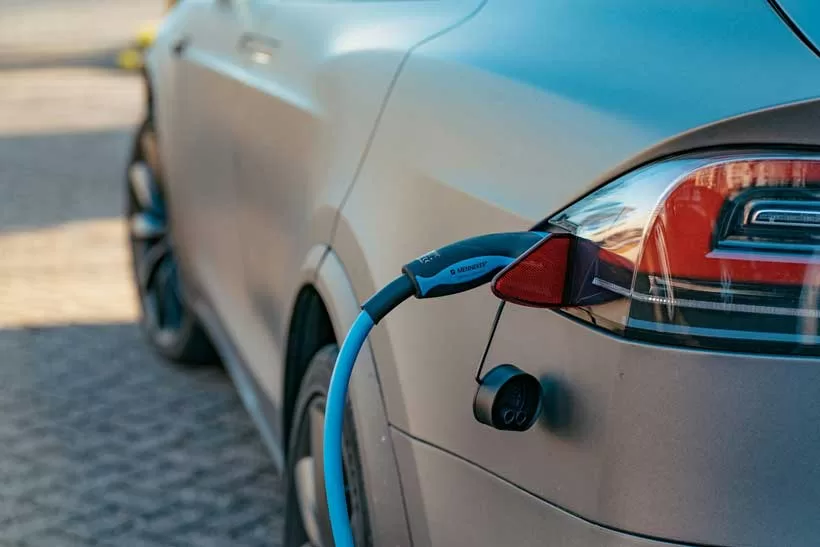Indonesia’s vision of implementing the usage of electric government fleets has been a cornerstone of its sustainability efforts and nation’s commitment to green development. In 2022, Joko Widodo signed a Presidential Instruction Number 7, aimed at accelerating the development of an EV ecosystem in Indonesia. It called for government institutions at both central and regional levels to take strategic steps toward EV adoption. These steps included procuring EVs, facilitating EV rentals, developing charging station infrastructures, and enacting supportive regulations involving numerous government institutions. The instruction represents a significant step toward reducing the nation’s dependency on fossil fuels and meeting climate mitigation targets stated in the Paris Agreement.
However, recently-inaugurated President Prabowo Subianto instructed all ministers, deputy ministers, and echelon 1 officials to start adopting the locally manufactured Pindad MV3 as vehicle fleet. While promoting optimistic national pride and industrial growth, this decision could slow down the electric mobility roadmap initiated by former president, raising concerns about sustainability and policy coherence.
Prabowo’s emphasis on the locally manufactured Pindad MV3 reflects a wider ambition to fortify Indonesia’s industrial base and assert economic self-reliance. PT Pindad, primarily known for its defense-oriented production, stands to gain significantly from this initiative. This state-owned manufacturer now has the opportunity to expand its business by diversifying its portfolio to include commercial and government vehicles.
Containing 70% domestic component level (TKDN), Pindad MV3 Garuda Limousine was designed by PT Pindad’s Director of Technology and Development, Professor Sigit Puji Santosa. The vehicle gained significant attention after Prabowo rode it in his inauguration convoy and later during the Red and White Cabinet Retreat in Magelang, Central Java. According to the Ministry of State Secretariat, PT Pindad has commenced the first phase of production to supply the operational fleets for ministers, followed by the second phase for the deputy ministers and equivalent roles. This approach is consistent with the president’s vision of strengthening national industries and fostering self-reliance, reinforcing Indonesia’s aspiration to achieve the ambitious Indonesia Emas 2045 vision of becoming a developed, prosperous nation.
Unfortunately, this strategy should be assessed carefully, due to local manufacturer’s readiness to compete with other brands and being a reliable substitute in terms of efficency, environmental standards, and cost-effectiveness. Besides, this policy risks being misinterpreted by global investors who have shown interest in Indonesia’s EV ecosystem development, including major automotive and battery manufacturers. A sudden shift away from electric vehicles could decrease investor confidence and hinder essential foreign direct investment in the sector.
While the local-pride initiative promises to boost domestic industry and economic benefits, it also contradicts the long-term EV roadmap, which is a critical component of Indonesia’s sustainability ambitions. Through the Net Zero Emission (NZE) Road Map for the Energy Sector 2060, the Ministry of Energy and Mineral Resources targeted transportation sector emissions must not surpass 52 million tonnes of carbon dioxide by 2060. However, the Pindad MV3 is currently a diesel vehicle, with the EV version still in development. Prioritizing the diesel model could slow down the progress toward Indonesia’s transition to cleaner transportation.
By sidelining this plan and focusing on MV3, the government may face the potential of ineffectiveness, squandered previous expenditures in EV infrastructures, and setbacks in global sustainability commitments. These conditions could lead to operational inefficiencies and diminished public trust while also delaying the country’s ability to meet its carbon reduction targets and attract foreign investments in green technologies.
Although shows Prabowo’s commitment for Indonesia to be self-sufficient and autonomous by using MV3, it also raises public concern about the country’s commitment to global sustainability. At the recent COP29 Summit, Indonesia reaffirmed its dedication to reducing emissions and strengthening global climate cooperation. Any deviation from the EV roadmap risks undermining these commitments, potentially damaging the nation’s reputation on the international stage.
It is crucial for the government to carefully balance these conflicting priorities. Fully implementing Prabowo’s directive could require amending existing EV regulations, a move that might erode public trust and policy consistency. Therefore, phasing in the Pindad MV3 while maintaining progress on EV adoption might be a possible compromise. For instance, government institutions could be given flexibility to allocate part of their fleets to local vehicles like MV3 while continuing investments in EV infrastructure and procurement.
Building on this, the government could also prioritize research and feasibility studies on developing the EV version of Pindad MV3. The government might incentivize PT Pindad to accelerate the development of the EV version of the Pindad MV3 by providing grants for R&D and forging collaborations with major EV manufacturers. Establishing precise timelines for phasing out diesel variants would also contribute to transparency and accountability.
Combination between phased strategy and forward-looking development would ensure that Indonesia capitalizes on its domestic industrial potential while staying aligned with global commitments. Although this step will be costly and politically challenging, it would demonstrate the government’s commitment and realistic way to balancing national self-reliance with sustainability. However, they should also calculate the costs and benefits since there are also other budgetary priorities, namely Free Nutritious Meal program and Nusantara Capital City (IKN) development.
Indonesia is at a critical juncture in its industrial and environmental progression. Finding the right balance between supporting domestic industries and achieving sustainability goals is essential. Through careful navigation of this policy conflict, the government can guarantee that both Prabowo’s vision for self-reliance and the current sustainability roadmap contribute to more robust and environmentally safe Indonesia.
Striking this balance will not only strengthen Indonesia’s domestic economy but also reinforce its pivotal role in global sustainability. By demonstrating its ability to harmonize industrial self-reliance with global environmental norms, Indonesia could serve as a model for other developing countries facing similar issues.
